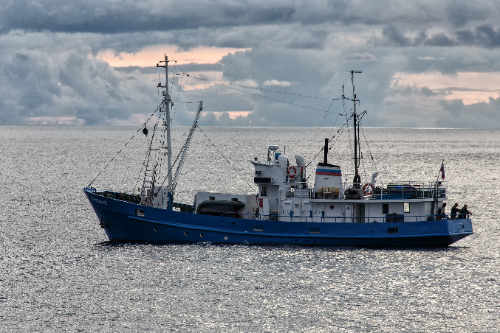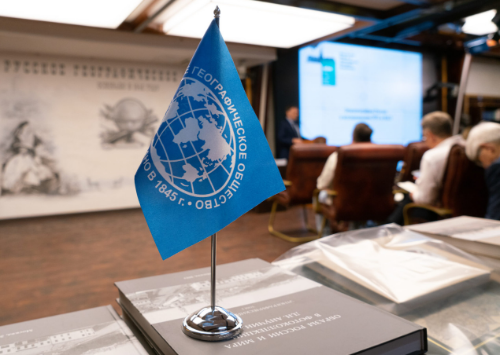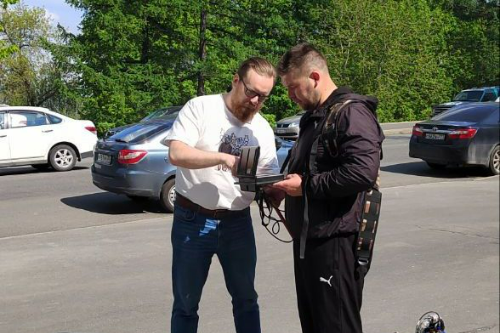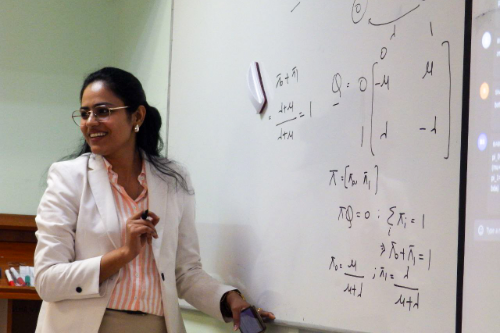News

June 26, 2025
Ice-related phenomena on rivers emptying into the White Sea now last three weeks less than 60 years before
Ice on northern rivers now forms later while ice-off occurs earlier. Karelian scientists confirmed this having analyzed 64 years of marine and meteorological data from the estuaries of rivers draining into the White Sea along its western coast. Climate change has bit three weeks off the ice-covered period on these rivers. The reductions have been the most significant in the last 30 years, aligning with global warming trends in Arctic water bodies.
Ice on northern rivers now forms later while ice-off occurs earlier. Karelian scientists confirmed this having analyzed 64 years of marine and meteorological data from the estuaries of rivers draining into the White Sea along its western coast. Climate change has bit three weeks off the ice-covered period on these rivers. The reductions have been the most significant in the last 30 years, aligning with global warming trends in Arctic water bodies.

June 23, 2025
Citizen science and web technologies help researchers study insects of Karelia
More than 30 insect species not encountered in Karelia previously have been revealed by entomologists from KarRC RAS during their expeditions and using data communicated by active participants of the iNaturalist portal – an open platform for collecting biodiversity data.
More than 30 insect species not encountered in Karelia previously have been revealed by entomologists from KarRC RAS during their expeditions and using data communicated by active participants of the iNaturalist portal – an open platform for collecting biodiversity data.

June 20, 2025
Application process for 2025/2026 Doctoral Studies started at KarRC RAS
On June 20, Karelian Research Centre RAS began accepting papers from applicants for its Doctoral Courses. This year, university graduates can choose from ten academic specialties in the STEM, natural sciences, humanities, and social sciences.
On June 20, Karelian Research Centre RAS began accepting papers from applicants for its Doctoral Courses. This year, university graduates can choose from ten academic specialties in the STEM, natural sciences, humanities, and social sciences.

June 17, 2025
An important phase of the KarRC RAS Director General election procedure completed
The Electoral Commission has summarized the results of the voting for the election of the Director General of KarRC RAS. The turnout exceeded 80% of the Center's employees. The majority of votes, 391, were cast for Alexander Kryshen, Director of the Forest Research Institute. Acting Director General Olga Bakhmet was supported by 252 voters, and Deputy Director General Yuri Zaika received 17 votes. The Electoral Commission documented these results in its report, which will be submitted to the HR Policy Department of the Federal Ministry of Science and Higher Education. The candidacies will now undergo the procedure of approval by federal agencies, after which the employment contract will be signed with the winner of the competition.
The Electoral Commission has summarized the results of the voting for the election of the Director General of KarRC RAS. The turnout exceeded 80% of the Center's employees. The majority of votes, 391, were cast for Alexander Kryshen, Director of the Forest Research Institute. Acting Director General Olga Bakhmet was supported by 252 voters, and Deputy Director General Yuri Zaika received 17 votes. The Electoral Commission documented these results in its report, which will be submitted to the HR Policy Department of the Federal Ministry of Science and Higher Education. The candidacies will now undergo the procedure of approval by federal agencies, after which the employment contract will be signed with the winner of the competition.

June 11, 2025
Posseidon research vessel is back from this season’s first integrated expedition
Employees of the Northern Water Problems Institute KarRC RAS completed an expedition around Lake Onego on board the Posseidon research vessel. The expedition covered 19 sites in bays, Central Onego, and Kizhi Skerries region. Scientists have sampled water for chemical and biological analyses.
Employees of the Northern Water Problems Institute KarRC RAS completed an expedition around Lake Onego on board the Posseidon research vessel. The expedition covered 19 sites in bays, Central Onego, and Kizhi Skerries region. Scientists have sampled water for chemical and biological analyses.

June 10, 2025
Scientists from KarRC RAS among winners of the Russian Geographical Society’s Grant Competition 2025
The results of the Russian Geographical Society’s Grant Competition 2025 have been announced. Among the winners are Nikolai Filatov, Corr. Academician, Chief Researcher of the Northern Water Problems Institute KarRC RAS, and Anastasiia Lyzlova, Senior Researcher of the Institute of Linguistics, Literature and History KarRC RAS. The objectives of their projects are to popularize the legacy of the outstanding geographer and statistician Konstantin Arseniev, and to spot North Russian folk tales in the RGS Scientific Archives.
The results of the Russian Geographical Society’s Grant Competition 2025 have been announced. Among the winners are Nikolai Filatov, Corr. Academician, Chief Researcher of the Northern Water Problems Institute KarRC RAS, and Anastasiia Lyzlova, Senior Researcher of the Institute of Linguistics, Literature and History KarRC RAS. The objectives of their projects are to popularize the legacy of the outstanding geographer and statistician Konstantin Arseniev, and to spot North Russian folk tales in the RGS Scientific Archives.

June 6, 2025
Study trip to KarRC RAS helps specialist from Vitebsk master new electrical resistivity imaging techniques, with applications in construction
Cooperation of Karelian Research Center RAS with Vitebsk State University continues. On June 5, the University's Master's student Dmitry Lysov completed his practical training course. The construction industry specialist studied the geophysical methods used by researchers at KarRC RAS.
Cooperation of Karelian Research Center RAS with Vitebsk State University continues. On June 5, the University's Master's student Dmitry Lysov completed his practical training course. The construction industry specialist studied the geophysical methods used by researchers at KarRC RAS.

June 5, 2025
Scientists from India and Russia lecture on mathematical modeling of communication systems at IAMR KarRC RAS
Institute of Applied Mathematical Research KarRC RAS is hosting a set of lectures of stochastic modeling of telecommunication systems. Scholars from the Indian Institute of Technology Delhi (IIT-Delhi) are appearing before young scientists from Russia and India as invited professors.
Institute of Applied Mathematical Research KarRC RAS is hosting a set of lectures of stochastic modeling of telecommunication systems. Scholars from the Indian Institute of Technology Delhi (IIT-Delhi) are appearing before young scientists from Russia and India as invited professors.



